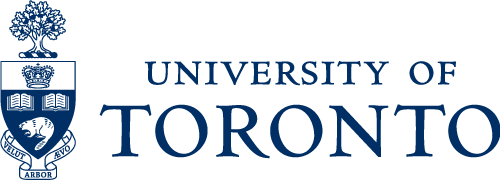This page features links to Open projects and software at the University of Toronto. These cover the complete range of Open initiatives, from Open Publishing to Open Information and Data. Projects differ from collections in that rather than providing materials, they more often provide access to tools and communities of practice.
- Experiential Learning (EL) Modules Project
This project aims to create a set of re-usable online learning assets to support curricular and co-curricular experiential learning (EL). Designed with customization in mind, these modules will touch on a range of topics to foster effective partnerships, incorporate EL into instructional practice and support the student learning process. These modules will be used to support students, faculty and community partners and employers through all stages of the EL process. - Experiential Learning with Riipen Pilot
This pilot project looks to support experiential learning across a range of discipline and course contexts, targeting opportunities for undergraduate students. Within a course context, students work on mini-projects, or “micro-experiential learning” assignments that are aligned with course goals, as well as an external partner need. The project leverages a third party platform, Riipen, to facilitate partnerships with community organizations and businesses by helping with the matching process, project set up, and ongoing coordination. - Open eText – Start Up Project
This project will undertake an environmental scan and needs analysis related to instructor support and workflow integration for open eText publishing processes. The primary output of the project will be an overview of key considerations in this domain presented as a resource guide to getting started in Open eText Publishing that can be integrated into the eCampus Ontario portal and other existing provincial organizations. - Data Driven Design – Innovation Network Project
This project aims to develop models for use of data-informed design at the course/instructor level and encourage effective implementation through a peer-based, collaborative faculty development initiative. It will impact practice through development of a collaborative community network; a series of example cases describing methods for collecting and analyzing data to support course design iteration; and a faculty development program format that can be replicated or extended. - Active Learning Opportunities Through Virtual Lab Curricular Integration
The goal of this multi-disciplinary initiative is to assess the potential impact of web-based, 3-D virtual lab technology when deployed in a range of online and technology-enhanced learning course contexts. - Motivation and Retention in Large Online Classes
These resources have been developed to provide those who are teaching (large) undergraduate online courses with strategies to motivate and retain their students. The material includes UofT examples and a literature review of practices related to motivating and retaining students in online courses; use of simple learning management system (LMS)-based analytics to predict students at risk; and a “readiness self-assessment” for learners.
- Accessible Learning Object Design
These materials have been created to support those involved in the development of online interactive learning objects using Articulate Storyline (Adobe Captivate to come). These self-directed learning resources provide guidance for designing for compliance of interactive learning objects with WCAG 2.0 AA Web Accessibility standards.
